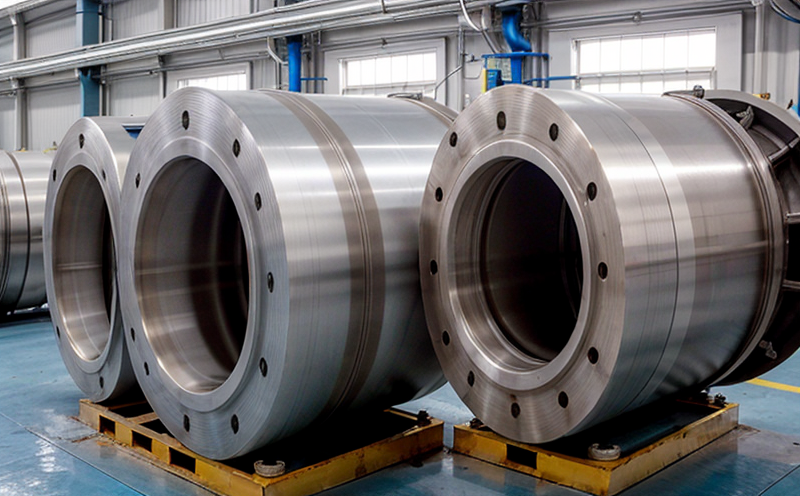Determining carbon content in alloys
Determining Carbon Content in Alloys Unlock the Full Potential of Your Materials
In todays fast-paced industrial landscape, precision and accuracy are crucial for businesses seeking to optimize their production processes and materials. One critical aspect that often gets overlooked is the determination of carbon content in alloys. This laboratory service, provided by Eurolab, is essential for ensuring the quality and reliability of your materials.
What is Determining Carbon Content in Alloys?
Determining carbon content in alloys involves analyzing the amount of carbon present in a metal alloy to determine its chemical composition. This process is critical because even small variations in carbon levels can significantly impact an alloys mechanical properties, such as strength, ductility, and corrosion resistance.
Why is Determining Carbon Content in Alloys Essential for Businesses?
Incorporating this laboratory service into your quality control protocols offers numerous benefits that can directly contribute to the success of your organization. Here are some compelling reasons why
Improved Material Selection By accurately determining carbon content, you can choose alloys with optimal properties for specific applications, reducing the risk of material failure and downtime.
Enhanced Product Reliability Regular carbon analysis helps ensure consistency in your products chemical composition, promoting customer satisfaction and loyalty.
Compliance with Industry Standards Determining carbon content is often required by regulatory bodies, such as ASTM (American Society for Testing and Materials) or ISO (International Organization for Standardization). Eurolabs services help you meet these standards, avoiding costly fines and reputational damage.
Reduced Production Costs By minimizing the risk of material failure, you can save on waste disposal costs, rework expenses, and losses due to downtime.
Increased Efficiency With accurate carbon content data, you can optimize your production processes, reduce trial-and-error testing, and streamline decision-making.
Key Benefits of Determining Carbon Content in Alloys
Here are the key benefits of incorporating this laboratory service into your quality control protocols
Accurate Material Selection Ensure that alloys meet specific requirements for strength, corrosion resistance, and other critical properties.
Improved Product Yield Minimize waste and rework by selecting materials with optimal carbon content.
Enhanced Customer Satisfaction Consistent product quality and reliability promote customer trust and loyalty.
Compliance with Industry Regulations Meet regulatory standards and avoid costly fines or penalties.
Increased Efficiency Streamline production processes, reduce testing costs, and optimize material usage.
How Does Eurolabs Laboratory Service Work?
Eurolabs team of experienced analysts uses state-of-the-art equipment and techniques to provide accurate and reliable carbon content analysis. Our laboratory service includes
Sample Preparation Careful handling and preparation of samples to ensure accurate results.
Analysis Techniques Employing methods such as Infrared (IR) spectroscopy, atomic absorption spectrometry (AAS), or other advanced technologies to determine carbon content.
Data Reporting Providing comprehensive reports with detailed analysis and recommendations for material selection.
Frequently Asked Questions
Here are some common questions and answers about determining carbon content in alloys
Q Why is carbon content important in alloys?
A Carbon content significantly affects an alloys mechanical properties, such as strength, ductility, and corrosion resistance.
Q What are the benefits of using Eurolabs laboratory service for determining carbon content in alloys?
A Our service provides accurate material selection, improved product yield, enhanced customer satisfaction, compliance with industry regulations, and increased efficiency.
Q How does Eurolab ensure accuracy in its analysis?
A We employ state-of-the-art equipment, trained analysts, and rigorous quality control protocols to guarantee reliable results.
Q What types of alloys can be analyzed for carbon content?
A Our laboratory service is suitable for a wide range of alloys, including steel, aluminum, copper, and titanium, among others.
Q How long does the analysis process typically take?
A The time required for analysis depends on the type of alloy and sample preparation. Our team will provide you with an estimated turnaround time upon receipt of your samples.
Conclusion
Determining carbon content in alloys is a critical aspect of material selection and production quality control. By incorporating this laboratory service into your protocols, you can unlock the full potential of your materials, reduce costs, and enhance customer satisfaction. Eurolabs experienced team and state-of-the-art equipment ensure accurate and reliable results. Contact us today to learn more about how we can support your business with our expert analysis services.
Additional Information
Eurolab is committed to providing exceptional laboratory services that meet the highest standards of accuracy and reliability. Our team of experts is dedicated to delivering prompt, comprehensive reports that help you make informed decisions for your business. For more information on our laboratory services or to request a quote, please visit our website or contact us through our online portal.
References
For further reading on the importance of determining carbon content in alloys, consult these reputable sources
ASTM E2371-19 Standard Test Method for Determination of Carbon Content in Metals by Infrared Absorption
ISO 170252018 - General requirements for the competence of testing and calibration laboratories




